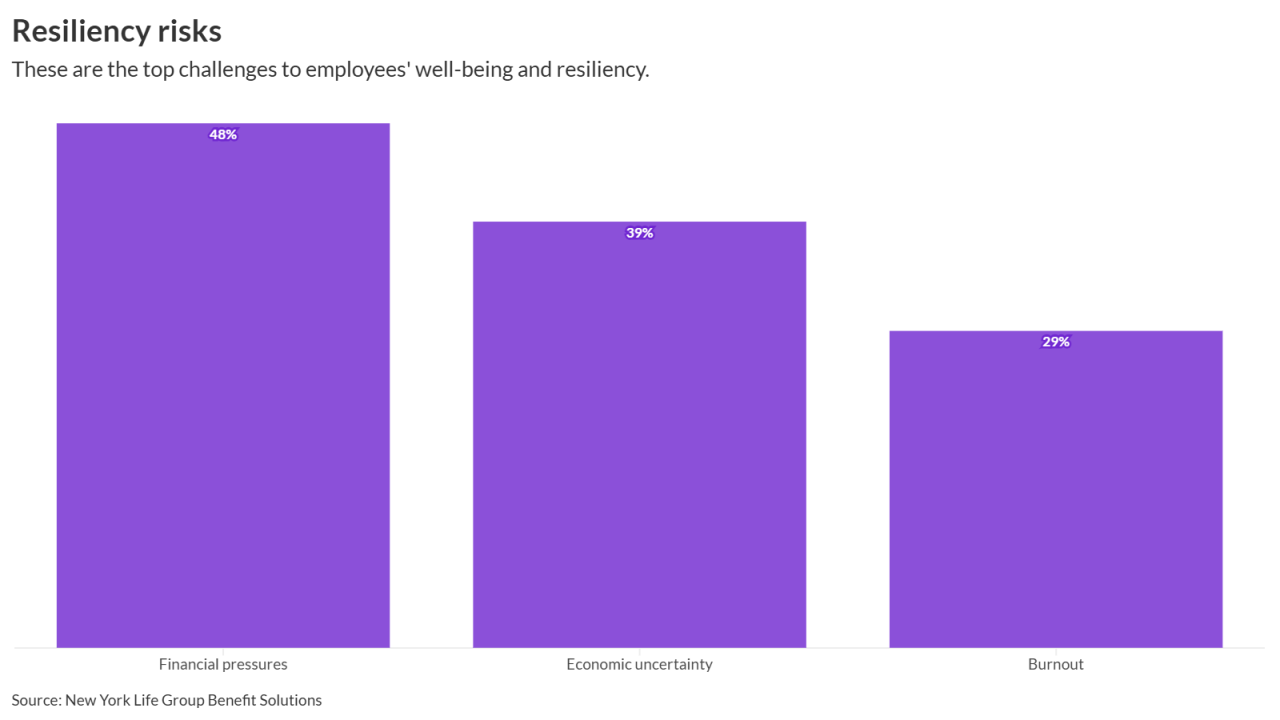On the website of diversity consultant BWG Business Solutions is a sentence that would have felt out of place five years ago, when companies were
BWG's founder, Janice Gassam Asare, isn't the only one changing the way she's doing business now that the Trump administration has placed
"I like to call it DEI done discreetly," said Gassam Asare.
Read more:
Some longtime BWG clients started letting contracts lapse in early 2024, as pushback against DEI entered
"Companies aren't sure what the future of DEI is going to be," she said, "so they don't want to invest in what they fear could be illegal."
For Keith Wyche, who writes and speaks about workplace culture and was previously a corporate vice president at
"Personally, I do make sure that I lean into my leadership skills, I lean into my career and background in change management transformation so that I'm not labeled a DEI guy," he said.
An attack on DEI
In his first days in office, President Donald Trump made good on his pledge to fight what he called an
A slew of U.S. businesses including
Corporate leaders are understandably jittery. In
Read more:
And the Equal Employment Opportunity Commission, created in the Civil Rights era to fight discrimination in the workplace,
And yet, at a January gathering of about 60 corporate CEOs, the moderator asked who in the audience was dismantling programs within their corporations. No one raised their hand.
"Most CEOs tell us: 'We're going to do the work of diversity, equity and inclusion. We may not boast about it, you may not get a DEI annual report anymore, you may not see us use it as a branding opportunity. But we're going to do the work," said Cid Wilson, president of the Hispanic Association on Corporate Responsibility, a pro-DEI group working to advance the inclusion of Latinos in corporate America.
He's spoken to some 200 corporate leaders about the topic in recent months, and he's come away with what he described as interest in figuring out how to "navigate this tighter lane." Wilson added: "That's been a very difficult maze."
Since the U.S. Supreme Court banned race-conscious admissions in colleges in 2023, company leaders worried about whether diversity programs would face legal challenges, even if laws hadn't actually changed yet. Big companies,
"If you're the general counsel, arguably you are the second most powerful person in corporate America right now," Wilson said.
Companies are notably pulling back on hiring DEI-specific roles. The number of new positions at S&P 500 companies was down more than 70% in 2024 from a peak three years earlier, according to a Bloomberg News analysis. This year, just six new roles were added through the start of April. "If your job title's got inclusion in it, it's either been changed or eliminated or repurposed," said Chantalle Couba, who advises leadership at private sector companies, nonprofits and higher education institutions on human capital issues.
Nearly all of the professionals interviewed said they expect the industry to transform further, though it's not entirely clear what that new reality will look like. Most agree that the days of plush budgets and listening sessions about race at work are gone, at least for now.
"My hot take is that we haven't done diversity well," said Misty Gaither, who previously oversaw DEI at Indeed and now works as an independent consultant. She hopes this moment allows companies to move away from narrowly focusing on hiring diverse talent, which often draws pushback. The better strategy is making sure that performance reviews are equitable for those that fall into marginalized groups or ensuring talent development is accessible throughout an organization.
"Moving away from more performative, topical things that have been bold headlines but really doing the hard work, the less sexy work," Gaither said. "I think that is something that can be a positive output from what we're seeing in this current landscape."





